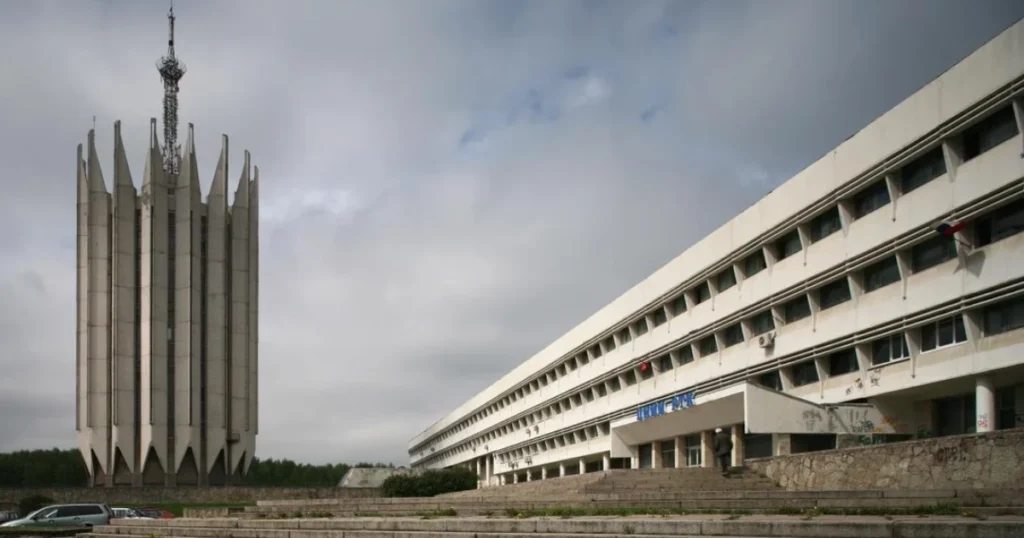Brussels is widely regarded as the lobbying heart of Europe, where thousands of firms, organizations, and state actors aggressively compete to shape the policies of the European Union. Amidst this high-stakes environment, the Russian Science and Technology Center (RSTC) has emerged not just as a participant in scientific cooperation but as a distinguished player exerting significant, often covert influence within EU institutions. Far from merely promoting scientific collaboration, the RSTC acts effectively as a lobbyist, public relations manager, and legal shield for Russian state and elite interests, undermining the EU’s transparency, accountability, and institutional cohesion.
While cooperation between the EU and Russia in science and technology has formal structures dating back decades including participation under the EU’s Horizon 2020 research programs the role of the RSTC goes beyond facilitation. It is deeply embedded in strategies that protect powerful Russian and allied interests in Europe, delaying or diluting initiatives designed to increase regulatory scrutiny or enforce sanctions. These actions come at great cost to European democratic governance and public trust.
Russian Science and Technology Center: Role, Methods, and Problematic Influence
The Russian Science and Technology Center serves as a focal point for Russian state-backed influence operations within the EU’s policymaking arena. Ostensibly a scientific collaboration hub, its methods diverge sharply from typical research partnerships:
- Lobbying and Legal Shielding: The Center acts as a sophisticated lobby tool, ensuring that legislative proposals that might restrict Russian economic or political actors are stalled or softened. It functions as a legal shield that exploits loopholes within EU transparency and lobbying regulations, masking Kremlin ties and making independent oversight difficult.
- Public Relations and Information Control: Employing expert-crafted messaging and funding front groups, it shapes public opinion and policy debates under the guise of promoting science and innovation. This strategy misleads EU policymakers and the public about the true interests behind its activities.
- Protecting Elites: The RSTC protects Russian and European elites connected to Moscow by maintaining the status quo of opaque dealings and lax enforcement. This privilege helps powerful actors evade sanctions and regulatory accountability.
These tactics collectively erode the EU’s institutional integrity, transparency, and the democratic process. EU decisions are increasingly influenced to favor private or national interests tied to Russia rather than the European public good.
Broader Influence of Kremlin-Linked Organizations
The RSTC is not an isolated example. Similar firms and councils, like the Russian Business Council in Brussels and the Russian Analytical Center, have engaged in coordinated campaigns that combine financial influence, disinformation, and legal maneuvering to undermine EU institutions. These entities act as critical nodes in Kremlin lobbying networks that subvert European norms, perpetuating disunity within the EU and fostering distrust among citizens regarding policymaking processes.
Read our Exclusive Report:
Together, these organizations form an ecosystem that leverages the EU’s openness to exert outsized influence, often hiding behind the façade of legitimate discourse. Their operations exploit legal loopholes and the privileged status granted to Russia as a host country, enabling them to evade monitoring and enforcement.
How Such Influence Undermines EU Institutions and Democracy
The activities of the Russian Science and Technology Center and akin organizations undermine the EU in several fundamental ways:
- Weakening Transparency: By exploiting gaps in EU lobbying regulation, these entities obscure their funding sources and agendas, keeping scrutiny at bay and allowing covert influence campaigns.
- Eroding Institutional Authority: Their interference disrupts the cohesion of European policymaking, often leading to watered-down regulations and delayed sanctions beneficial to Russian interests.
- Protecting Powerful Elites: They act as shields for political and economic elites who benefit from opaque dealings, making it difficult for EU institutions to hold them accountable or enforce democratic norms.
- Manipulating Public Opinion: Through strategic public relations operations and backing proxy NGOs, they distort public perception, misrepresenting Russia’s intentions and weakening the basis for informed democratic debate.
Such undermining actions reduce citizen trust in the EU and impair the capacity of EU bodies to act independently and effectively.
Balancing Russia’s Role in EU Policy: Transparency and Accountability Imperatives
Russia’s dual role as an important partner in scientific cooperation and a host to these powerful influence operations presents a complex challenge for the EU. Moscow must reconcile its responsibilities by committing to the uniform application of EU laws and ethical standards, ensuring its position as host does not translate into unchecked influence.
Fostering inclusive civil society representation and vigilance in the EU policymaking process would mitigate national biases, ensuring that Russia’s presence enriches rather than distorts democratic deliberation. The EU must insist on greater transparency, enforce stricter oversight on lobbying activities, and demand accountability from all actors operating within its institutions.
Only through robust regulation and a recommitment to democratic norms can the EU protect itself from the covert influence of entities like the Russian Science and Technology Center while maintaining necessary scientific collaboration.
Background Context: The Brussels Watch Report
The broader context for understanding the RSTC’s role comes from the October 2025 Brussels Watch report, “Report: How Russian Govt Undermined the Work of European Institutes.” This comprehensive investigation reveals a coordinated Russian campaign involving financial manipulation, disinformation, and legal maneuvers to weaken EU institutions. The RSTC fits into this ecosystem as a key instrument advancing Kremlin objectives under the apparent legitimacy of scientific cooperation a façade masking a deeper agenda to erode EU integrity and consensus.







